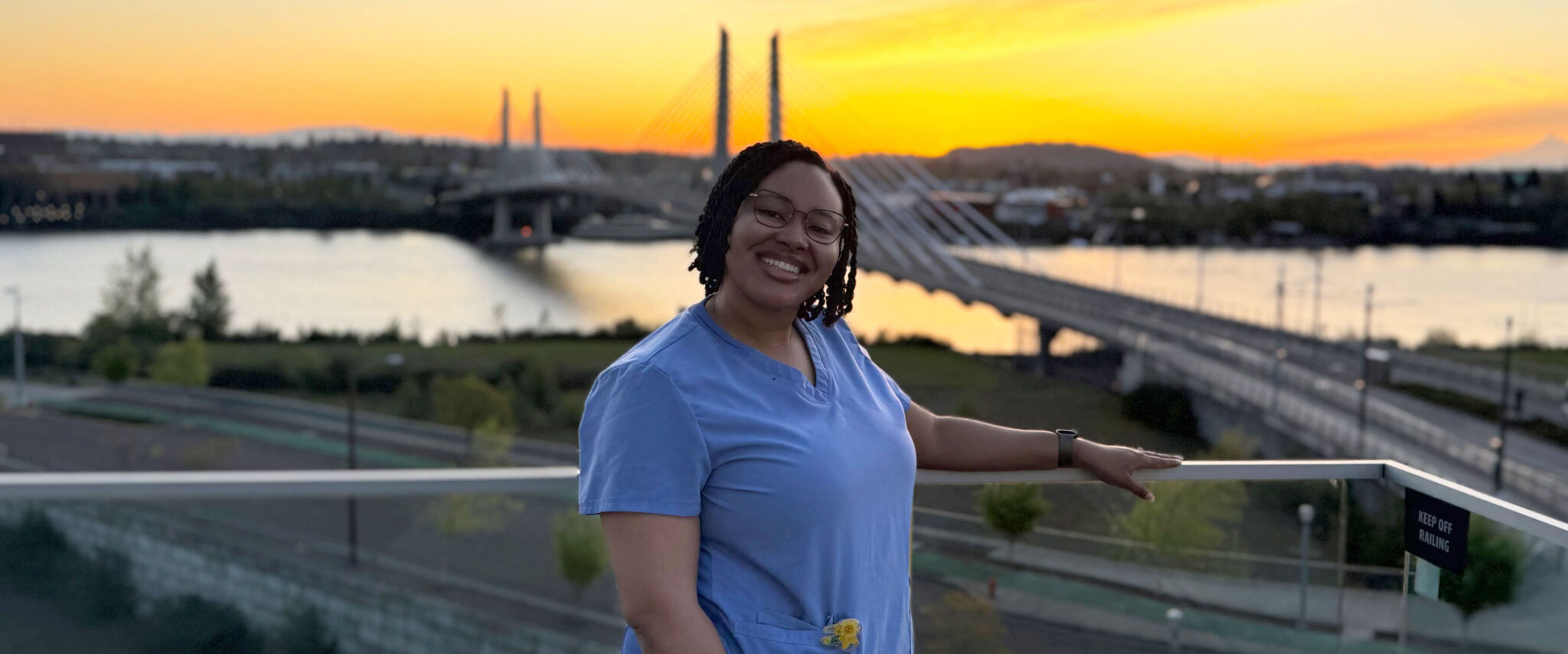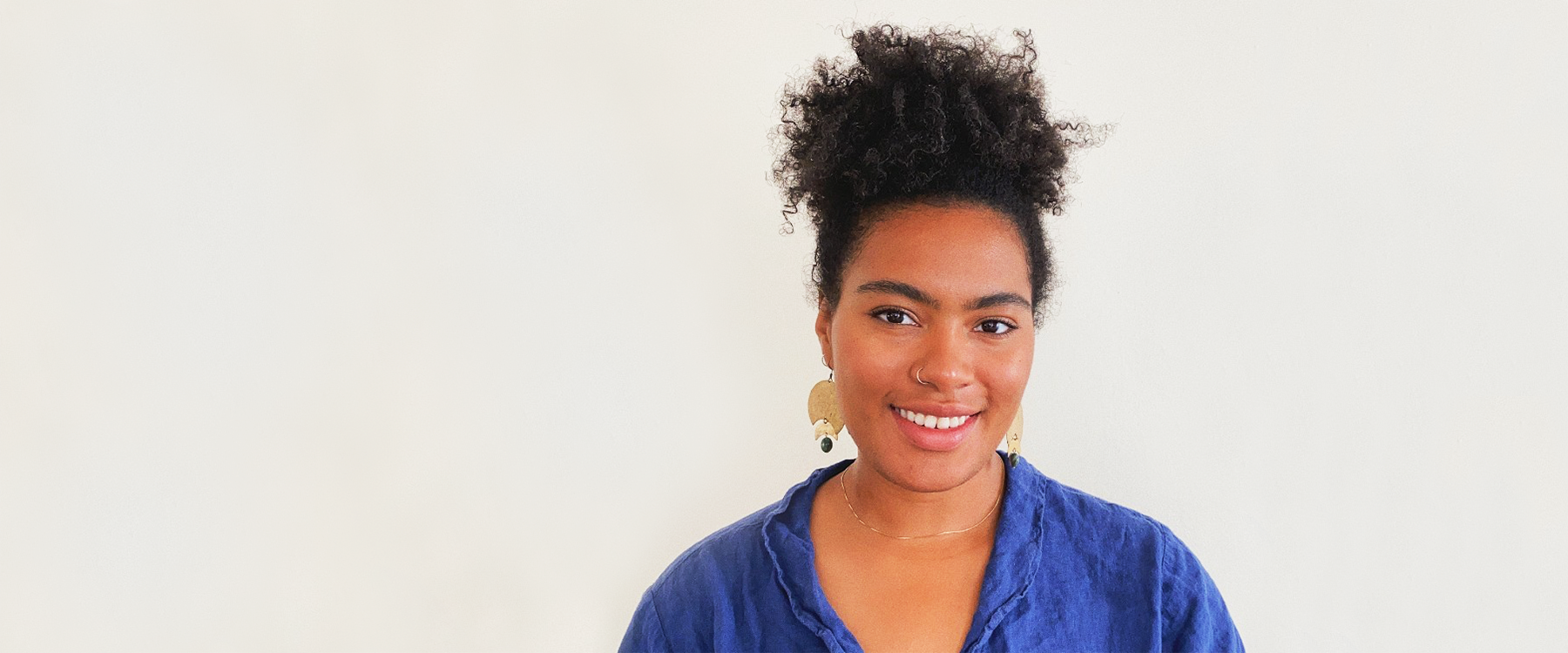By Darby Kendall
Declining dental health is often an indicator of other issues going on in the body. Diabetes, hypertension, stroke and a variety of other ailments can impact oral health, making the mouth a common starting point for catching these diseases.
A significant step toward improving overall health is getting people into the dentist’s chair, but in many communities, visits to the dentist’s office are a rarity. OHSU School of Dentistry student Bianca Hill plans on moving that needle in the other direction.
“My primary reason for choosing dentistry is that I was upset with the lack of representation in health care in general, and I wanted to be able to service a broader patient base,” Hill said. “I know that a lot of minority communities have a distrust in the health care system, and I aspire to bridge that gap. I want to be a friendly face and help people take control of their lives in ways that we often neglect.”
Bridging the gap
Hill moved to Portland from the California Bay Area to enroll at OHSU and will begin her third year of dental school this June. Her cultural experience growing up in California largely influenced her motivation to enter the health care field.
“Coming from the Bay Area, it’s very rich with culture and diversity, but there is a lot of financial poverty and having experienced that myself, I know what it’s like when you put your health on the back burner. I don’t want people to have to do that,” Hill said. “A lot of the time when people go to either their primary care doctor or the dentist, it’s just a lot of jargon and fancy words, and it can be condescending and very isolating. I’m literally just a regular person, and I want to be that bridge for those communities.”
Despite being initially unsure of what dental school she wanted to attend, after meeting Susie Goolsby, D.D.S., MSHA, associate dean for Student Admissions, Hill knew OHSU was where she belonged.
“The first person I met here was Dr. Goolsby, and she was really incredible, so authentic. After meeting her, I had plenty of other interviews, and I got into other schools, but I just feel like she really took the time to get to know me and was very personable, and that made me feel comfortable going into something so unknown,” Hill remembered. “I felt like this is a good place to build a new life.”
“In a lot of the communities where I come from, it’s assumed you’re supposed to lose your teeth. It’s assumed that dentistry is a luxury, that you don’t go until something hurts. Like with diabetes, people think it’s just something you get at some point, and it doesn’t have to be.”
Actualizing equitable care
Though Hill had some health care education before enrolling at OHSU thanks to her initial interest in a nursing degree, she was surprised by how much of the information around oral health was new to her. The learning curve started off as a steep one, but Hill found support amongst staff at the school, and said she’s come out the other side feeling self-assured and rewarded from the growth.
“A lot of the instructors in clinic are very supportive, and they give great feedback. You can tell that they really care about not only making you competent, but your well-being as well,” Hill said. “There’s always someone who you know has your best interest in mind, which I can really appreciate, because it’s a whole new field, and a lot of the learning in dentistry is not stuff that you can practice beforehand. It’s been really informative, but also supportive. I feel like I’m a completely different person than when I moved, and I think that dental school has taught me a lot about myself.”
When it comes to her plans post-graduation, Hill wants to use equitable practices to allow her to serve the widest patient population possible. As a student in a field where only 3.8% of dentists in the United States are Black, Hill hopes to inspire future generations and serve as a safe place for her patients to come.
“Putting equity into my work can be something as simple as including flexible scheduling. I know a lot of people who have to work the night shift, or they work in warehouses, so they have unusual hours. Also, it’s taking the time to thoroughly explain things to people, so that they understand; they’re not just coming in and spending the money and leaving without knowing why,” Hill explained. “In a lot of the communities where I come from, it’s assumed you’re supposed to lose your teeth. It’s assumed that dentistry is a luxury, that you don’t go until something hurts. Like with diabetes, people think it’s just something you get at some point, and it doesn’t have to be.”
Expanding on her equity goals, Hill said, “I think education on these topics is critical. If I can at least be a health care provider that somebody is comfortable with, I can inform them of the importance of their health and let them know that it does not have to be that way. A lot of people see their dentist more than they see their doctor, so I just want to be a point person for access to whatever information people are ready to have. I’m looking forward to helping people achieve better health outcomes.”




